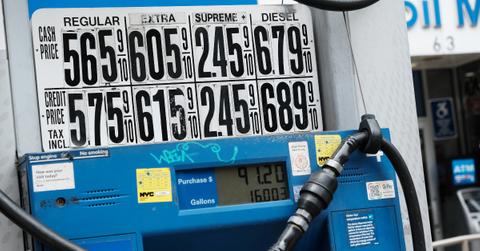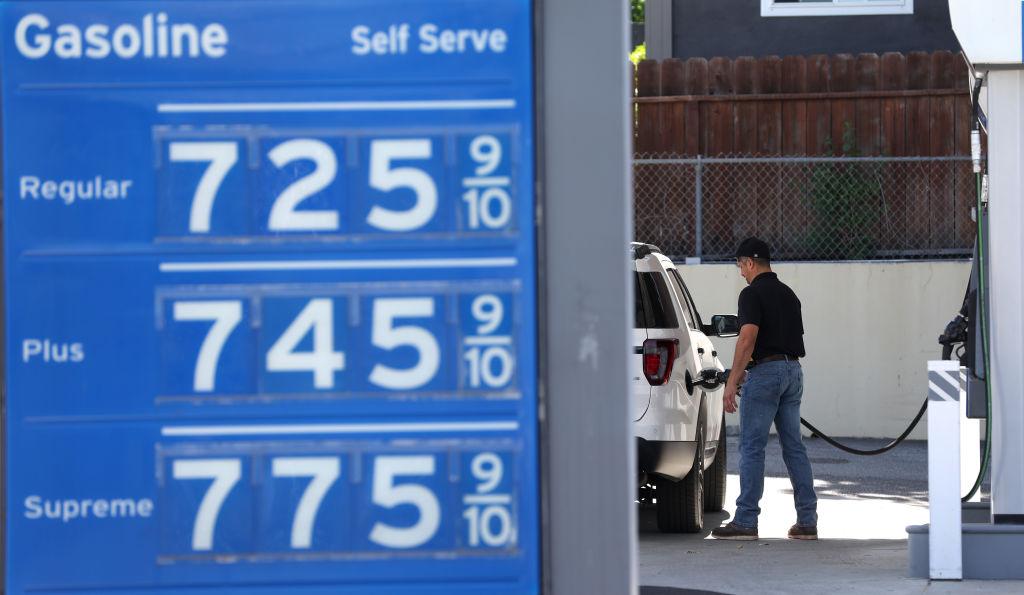A Recession Might Be Necessary to Bring Down Gas Prices
What happens to gas prices in a recession and will gas prices come down in 2022 if a recession hits the U.S. economy? Here are all the details.
July 6 2022, Published 9:50 a.m. ET
U.S. gas prices surged to their all-time highs in June. While prices have since come down a bit, they are still much higher than what we’ve seen over the last few years. Recession fears have also been rising in the U.S. even as the Biden administration and Federal Reserve don’t see it as imminent. What happens to gas prices in a recession and will gas prices come down in 2022 if a recession hits the U.S. economy?
Oil is possibly the most geopolitically sensitive commodity. From tensions in the Middle East to Russia’s belligerence, several factors impact global oil prices. Since U.S. gas prices are market-linked, global crude oil prices eventually manifest at the gas stations.
Recessions and high oil prices go hand in hand.
According to data compiled by Luca Paolini, chief economic strategist at Pictet Asset Management, whenever oil prices have risen 50 percent above the trend in the last five decades, a recession has followed. The last three recessions, barring the 2020 recession that was caused by the COVID-19 lockdowns, were preceded by a steep rise in oil prices.
However, the relationship between oil prices and recession isn't as straight forward and they aren't necessarily a recession indicator. At times, recessions are preceded by bubbles in the economy and oil prices rise during the period.
U.S. gas price predictions would depend on oil prices.
U.S. gas prices averaged $4.80 per gallon on July 6. Gas prices are set to fall further as global crude oil prices tumbled below the psychologically crucial $100 per barrel price level. While President Joe Biden has proposed a Federal gas tax holiday, and some states have waived state gas taxes, a sustained fall in oil prices is necessary to bring visible relief from high gas prices.
JPMorgan Chase's gas price prediction is $6 per gallon.
JPMorgan Chase previously predicted that average gas prices in the U.S. would rise to $6 per gallon in the summer driving season. Now, it's calling for global oil prices to more than triple to $380 per barrel in the worst-case cut from Russia. If global crude oil prices reach anywhere near that level, we can be pretty much sure of a massive global recession.
Citi expects oil prices to crash due to recession worries.
Citi has a different view of oil prices. It sees crude oil prices falling to $85 per barrel by the end of 2022. However, in the case of a recession, it expects oil prices to fall to $65 per barrel by the end of 2022 and $45 per barrel by the end of 2023. Recently, Citi raised its odds of a U.S. recession to 50 percent.
Several other brokerages have also been raising their odds of a recession. The Atlanta Fed’s GDP tracker shows that the U.S. economy is already in a recession. Cathie Wood, whose ARK Funds have underperformed badly since 2021, also believes that the economy is in a recession.
Biden says a recession isn't inevitable, but might not mind one.
Biden and members of his cabinet have said that a recession isn't inevitable, a view some economists don’t adhere to. However, Biden might not mind a recession since it would help lower gas prices. The recent crash in oil prices is also driven by recession fears.
A fall in crude oil prices would put pressure on Russia, whose economy is benefiting from higher oil and commodity prices. Far from being reduced to “rubble” as Biden said, the Russian currency rose to a multi-year high after the initial crash.
The Russian economy isn't feeling much heat even though the West has imposed multiple sanctions and scores of foreign companies have left the country for good. A crash in crude oil prices, which arguably only a recession might cause, would put pressure on Russian President Vladimir Putin to reconcile with Ukraine as well as the West.
While recessions are invariably bad for most people, a recession might be needed now to not only bring down the multi-decade high inflation but also possibly to cajole Putin to end his invasion of Ukraine.


